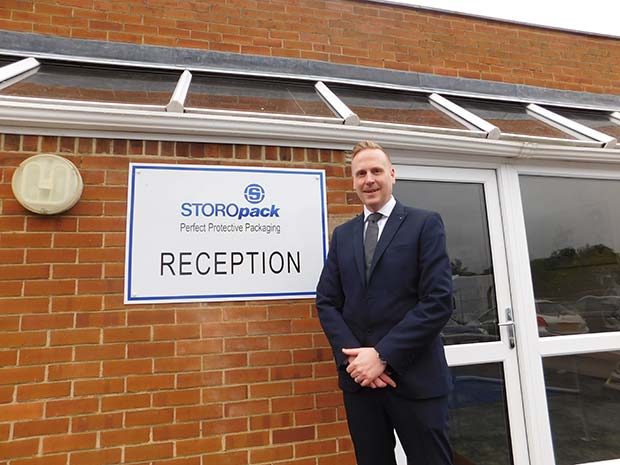With only six months until the introduction of the Plastic Packaging Tax, Richard Pulfrey, Managing Director of Storopack UK, discusses the need for the industry to act now.
It was four years ago that the government first announced its intention to introduce some form of taxation or levy on plastic packaging products. A lot has happened in that time. The UK has seen two General Elections, the Brexit referendum and subsequent exiting from the EU and, of course, the global pandemic. All of these events have led some businesses to put the Plastic Packaging Tax (PPT) to the bottom of their list of priorities. Now we are nearing the 1st April 2022, all those in the plastic packaging industry need to put it to the top of their agenda.

Compliance not avoidance
The tax of £200 per tonne will apply to packaging with less than 30% recycled plastic either manufactured in or imported into the UK. Unfortunately, we are seeing increased messaging around products ‘avoiding the plastic tax’. At Storopack, we believe the messaging should be about complying with the legislation with a focus on developing products that reduce environmental impact and are therefore exempt. It might seem trivial but this small change in language changes the perception of the new legislation from a punishment to an incentive. As the government website explains:
‘This measure is not expected to have any significant macroeconomic impacts. The tax will provide a clear economic incentive for businesses to use recycled plastic material in plastic packaging, which will create greater demand for this material and in turn stimulate increased levels of recycling and collection of plastic waste, diverting it away from landfill or incineration.’
Storopack have been developing products and worldwide production facilities to reduce plastic waste, not to ‘avoid the tax’ but because we believe it is our responsibility to look after the environment. We are in a position to offer sustainable packaging solutions now, including 50% and 100% recycled AIRplus® film as well as the recent addition of AIRplus® Bio Home Compostable film. Storopack are also committed to Operation Clean Sweep and through our Molding-Division in Germany, are a certified member of the Zero Pellet Loss initiative of the German Association for Plastics Packaging and Films.
Driving a circular economy
According to a report in 2016 by the Ellen MacArthur Foundation between US$80-120 billion of plastic is lost annually. This valuable resource must be reused and recycled, keeping it in the economy and out of the oceans.
In 2020, more than 30 percent of our products manufactured in-house were made from renewable or recycled materials. By 2025 we will increase this share to over 50 percent.
Despite our broad portfolio of products made with renewable and recycled raw materials, we seek to promote an objective and fact-based assessment of plastics. In terms of resource input and CO2 emissions, these often represent the most environmentally friendly material for protective packaging, especially when these materials are already made from recycled materials. That is why it is so important to us to promote circular economies around the world – and therefore significantly boost the recycling rate. This new measure should, therefore, encourage more plastic packaging businesses to embrace the principles of the circular economy.
Understanding the implications
For those businesses seeking more information and guidance on what the new Plastic Packaging Tax involves, who it affects and how to comply with the legislation, it is important to turn to reliable sources. If in doubt, we recommend going to the primary source for information, the government website. As well as details of the legislation, they have a number of informative documents, including ‘Get your business ready for the Plastic Packaging Tax’. The site also explains how to register for Plastic Packaging Tax which you must do before 30 April 2022 if you manufacture or import 10 or more tonnes of plastic packaging over a 12-month period and you must register even if your packaging is not chargeable and you do not have to pay any tax. It is vital that packaging businesses understand how to correctly report their plastic as fraudulent evasion comes with a significant fine.
Storopack have already been advising our customers of any potential impact and we will continue to support our partners before and after the implementation of the tax.




Comments are closed.